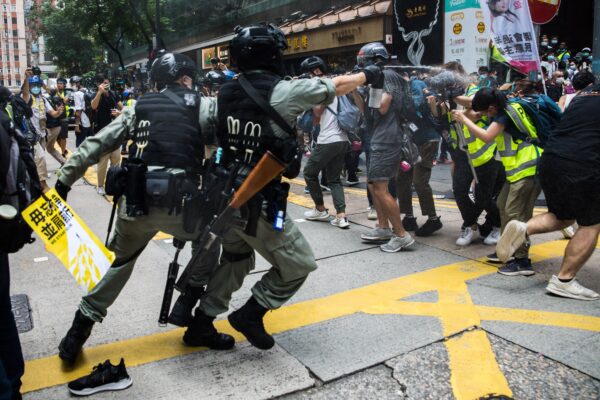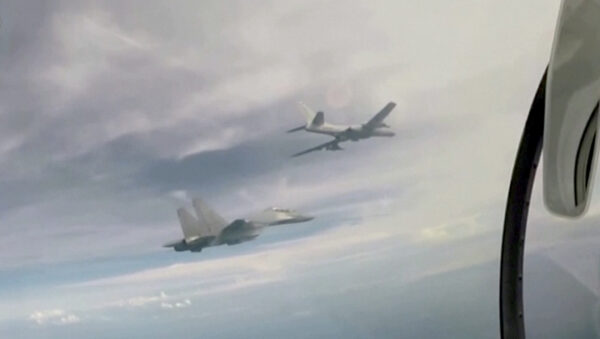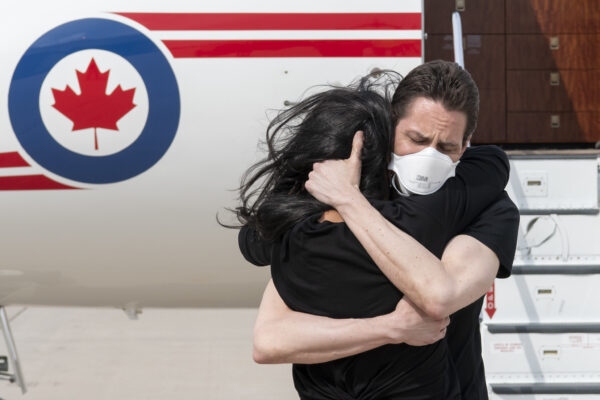Ottawa Keeps Its China Policy ‘Deliberately Obscure,’ Experts Say
Distressed Patriotic Flag Unisex T-Shirt - Celebrate Comfort and Country $11.29 USD Get it here>>

The Liberal government is deliberately keeping its China policy obscure, but with Beijing flexing its muscles in the Indo-Pacific it is important to take concrete action to strengthen defence in the region, say experts.
Terry Russell, a senior scholar at the Asian Studies Centre at the University of Manitoba, says Canada lacks a clear China policy and is being “deliberately obscure” on the issue out of a desire to maintain business relationships with Beijing. However, the federal government is aware of the public’s disapproval of the regime’s many human rights violations, he said.
“The government of Justin Trudeau is aware that most Canadians are very suspicious of China and not supportive of leaning further, deepening engagement with China, without some sort of corresponding attention to human rights and rules-based order in the international sphere,” Russell told The Epoch Times.
“But the Liberal government is heavily indebted to and reliant on some very large businesses interests that have a lot of dealings in China, and they don’t want to endanger those businesses,” he added.
“So it’s a kind of balancing act for the Liberals, because they have to, on the one hand, respond to Canadian popular sentiment, which is generally hostile to China, but on the other hand, they’re very intent on keeping [China’s] business support. So I think in many ways it’s deliberate that the Canadian China policy is not very clear.”
While the government can be critical of Beijing’s transgressions, it hasn’t done “nearly enough” to call out the regime and demand better, Russell says.
“The government, and especially Justin Trudeau, are happy to make statements about how they disagree with and condemn China’s treatment of Uyghurs and the situation in Hong Kong, and generally the human rights situation in China, but they really haven’t taken a lot of action in terms of trying to do something tangible to demonstrate to China that they really aren’t happy about these situations.”

Like Russell, Julian Spencer-Churchill, an associate professor of political science at Concordia University, says the Liberal government is “definitely unclear and deliberately obscure” on its China policy.
“The Canadian government and the Liberal Party is deliberately obscuring the [China] policy because they want to get the votes,” he told The Epoch Times. “They’re avoiding the issue because they get votes from ambiguity.”
Spencer-Churchill also says the Liberal government has “an anti-military agenda.” Compared to its allies in the North Atlantic Treaty Organization, Canada’s military expenditure is “incredibly small,” and as a Pacific power, it is not doing its part to deter countries like China.
“Canada is a classic, lazy isolationist. We just don’t want to pay for it,” he said.
Defence in the Indo-Pacific
Foreign Affairs Minister Mélanie Joly is tasked with developing and launching “a comprehensive Indo-Pacific Strategy to deepen [Canada’s] diplomatic, economic and defence partnerships and international assistance in the region,” according to her mandate letter.
That task presents considerable challenges, as China has been making increasingly aggressive territorial claims in the region. Most recently, Beijing initiated economic sanctions against Taiwan following U.S. House Speaker Nancy Pelosi’s visit to the self-ruled island. The regime has also been escalating military exercises in the region, including firing missiles into the Pacific Ocean near Taiwan’s east coast.

In response, Canada should take action to strengthen ties with democratic countries in the region and ramp up defences against China, Spencer-Churchill says.
“What should Canada do? It should have a deterrent policy. Canada should identify countries that have similar values and or are strategically important. Taiwan is strategically important. If China gets Taiwan, it can then deploy its fleet aggressively,” he said.
Spencer-Churchill said Canada should immediately deploy its air force and navy to Taiwan and secure the ports with naval ships and submarines to deter Beijing from crossing the Taiwan Strait. He also urged the federal government to initiate negotiations with the Philippines, which is strategically important, pointing to efforts being taken by the U.S. and Australian governments.
Russell suggests sending high-level parliamentary delegates or federal ministers to Taiwan to signal support. He also recommends imposing Magnitsky sanctions against certain officials in the Chinese Communist Party for human rights violations.
‘Not on China’s Conditions’
The Canada-China relationship soured following the arrest of Meng Wanzhou, senior executive of Chinese telecom giant Huawei, in December 2019 on a U.S. warrant to have her extradited on bank fraud charges.
Shortly after Meng was taken into custody, Beijing detained Canadian citizens Michael Kovrig and Michael Spavor for alleged espionage activities. After spending more than 1,000 days in detention, the two men were released and returned to Canada on Sept. 25, 2021. Their release came after the United States worked out a deferred prosecution agreement on the Meng case, allowing her to fly back to China a day earlier.

Russell says he doesn’t think Ottawa should be rushing to rekindle Canada-China relations just yet.
“I don’t think it’s time to do that yet at all because it seems pretty clear that China doesn’t feel like it really has done anything wrong in taking the two Michaels as hostages,” he said.
“It would be good if Canada were to wait awhile and let China think about what has happened rather than rushing into sort of some apologetic position and trying to rebuild the relationship. … I don’t think it’s appropriate at all.“
Jacob Kovalio, an associate professor specializing in Asian international relations at Carleton University, said the government has been “trying very desperately to get back to some kind of being in China’s graces” after the Meng affair, pointing to Joly’s call in May for the two countries to re-establish ties.
However, given Beijing’s aggression in the Indo-Pacific, he says Canada should think twice.
“As long as China engages in what I fundamentally consider to be aggressive foreign policy vis-a-vis just about everybody in Indo–Pacific which doesn’t follow China’s preferences, we should never even consider going back to some kind of normality in our relationship, and that includes the trade issue,” Kovalio said in an interview.
“We have to constantly be engaging China, but not on China’s conditions, and make sure that we defend our national, economic, technological, and of course, trade interests. That is only the kind of very manifold approach that makes any sense.”





